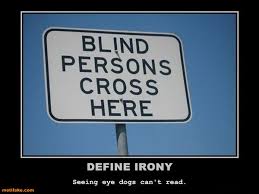记忆方法
将“ironic”拆分为“iron”和“ic”。想象一把铁(iron)弯曲成了不寻常的形状,形成了某种意外的或者相反的效果,这就像生活中的讽刺和矛盾,从而记住“ironic”表示讽刺或反讽的含义。
以上内容由AI生成, 仅供参考和借鉴
中文词源
ironic 讽刺的
来自irony,讽刺。
英语词源
- ironic (adj.)
- 1620s, from Late Latin ironicus, from Greek eironikos "dissembling, putting on a feigned ignorance," from eironeia (see irony). Related: Ironical (1570s); ironically.
权威例句
- 1. It's ironic that she became a teacher—she used to hate school.
- 令人啼笑皆非的是她成了教师—她过去一向厌恶上学。
- 2. At the most solemn moments he will flash a mocking smile or make an ironic remark.
- 在最庄严的时刻他脸上会闪现嘲弄的微笑或说一句讽刺挖苦的话。
- 3. He is in the marriage bureau business, which is mildly ironic seeing that his dearest wish is to get married himself.
- 他从事婚姻介绍工作,这多少有点讽刺意味,因为他最大的愿望就是自己能结婚。
- 4. Does he not find it ironic that the sort of people his movie celebrates hardly ever watch this kind of movie?
- 他电影里颂扬的那些人几乎从不看这种电影,难道他不觉得这是种讽刺吗?
- 5. It's ironic that the weakest student in mathematics was elected class treasurer.
- 数学最差的学生竟被选为班级财务干事,这真是具有讽刺意味
